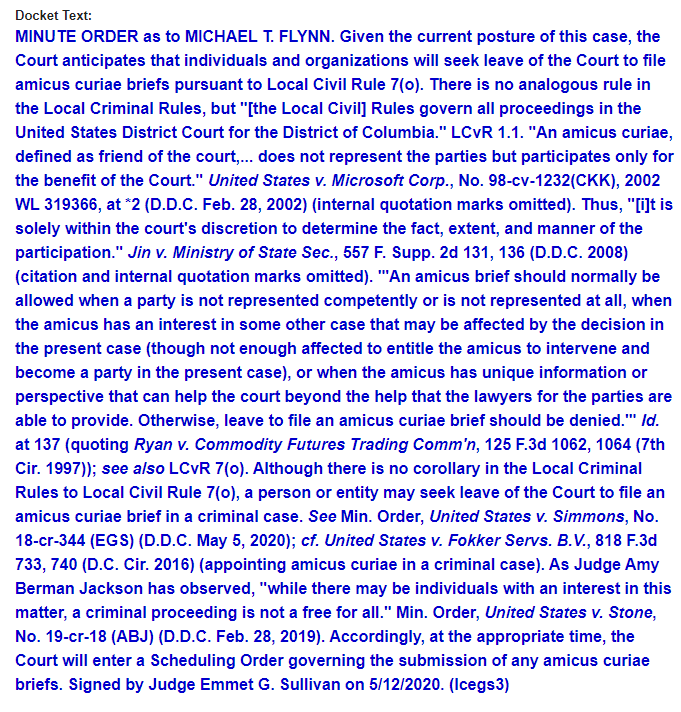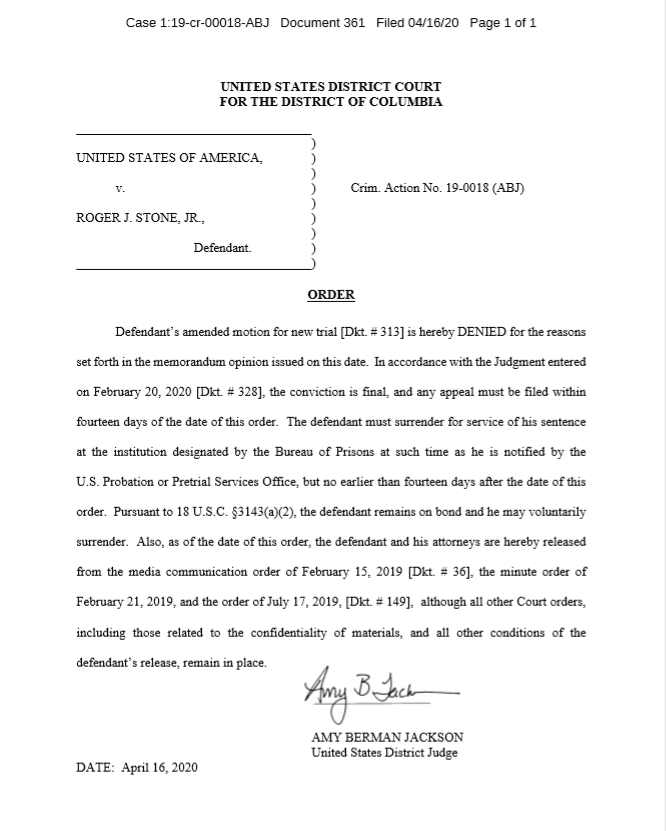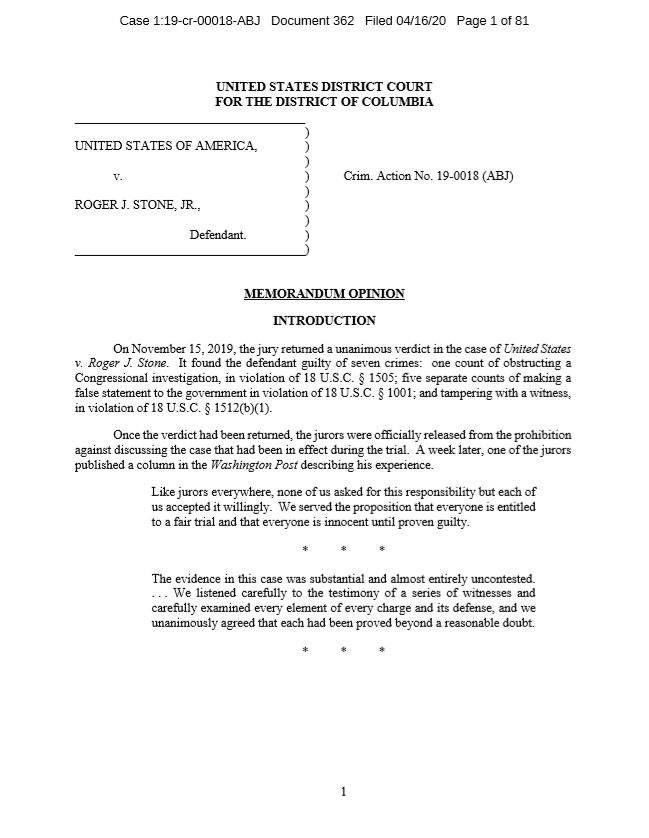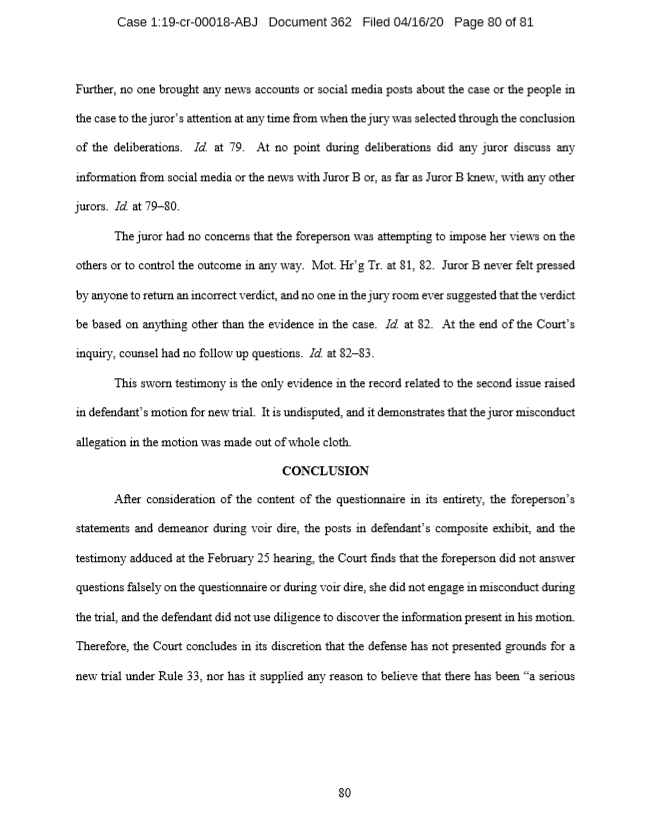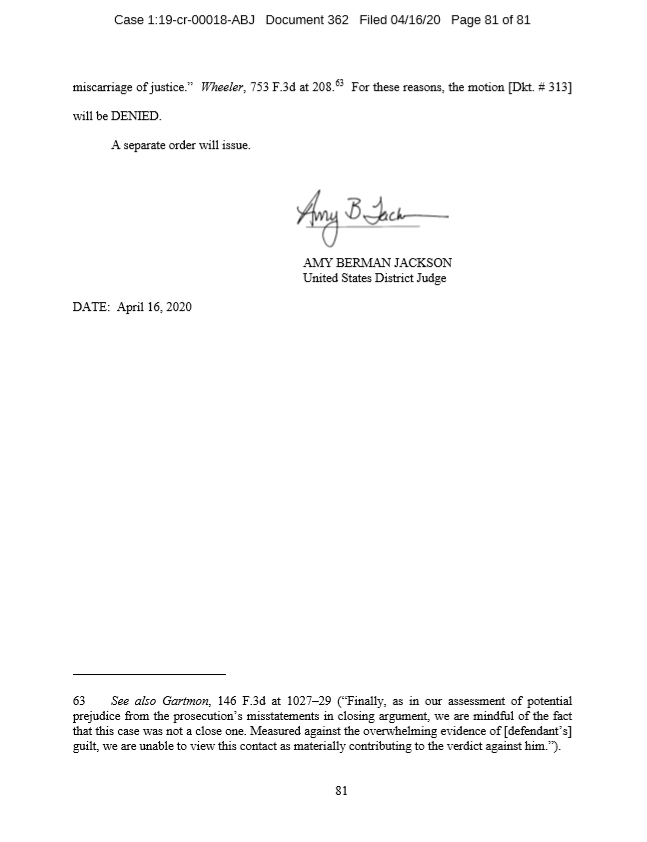Trump counsel says it's important to note those cases involved cooperative efforts.
"What's the line between the legislative subpoena and an impeachment related subpoena?"
"Does Congress have any power to regulate the conduct of the president which is an office that is created by the Constitution itself and not by Congress?"
Counsel disputes and justice follows up that these are personal papers.
Adds the Trump counsel is asking the justices to put a "ten ton weight on the scales between the president and Congress."
Trump counsel says he doubts that the House subpoenas can meet the demonstrated need standard.
"It's paper thin," DOJ counsel responds. @CourthouseNews
"One must investigate before legislation...you want to explore what is the problem, what legislative change can reduce or eliminate the problem."
Wall argues that makes it "deeply troubling" and raises "equally problematic constitutional concerns."
But he argues that a ruling upholding the subpoenas for Trump's tax returns will take the country down a dangerous road.
Letter says it stems from the British parliament power and is an "obvious and integral part of legislation."
"We obviously can't have Congress passing legislation in ignorance."
"That's not much protection. In fact that's no protection, isn't it?"
Reminds the court that four lower courts found clear, valid legislative purposes in the subpoenas.
Letter tells Sotomayor yes, cites DC Circuit and 2nd Circuit rulings.
The chief justice has been strict on timing but it's seeming to stifle developing lines of questioning that go deep into the separation of powers conflict here.
Nixon for example.
The House attorneys adds the recent Bridgegate ruling is an example of SCOTUS tossing white collar charges.
Thomas asks if a flood of subpoenas have the ability to debilitate the White House.
"We're not dealing with what ifs here," the House attorney argues.
"I think it's telling that he can't provide any meaningful limit to that," the Trump attorney says about Letter's arguments for congressional subpoenas of president's personal records.
"This is not an attempt to preserve the separation of powers. It is an attempt to eviscerate that."
That's a wrap for the case coming up from the D.C. Circuit.
Trump v Vance up now with Jay Sekulow opening for the president on the 2nd Circuit case.
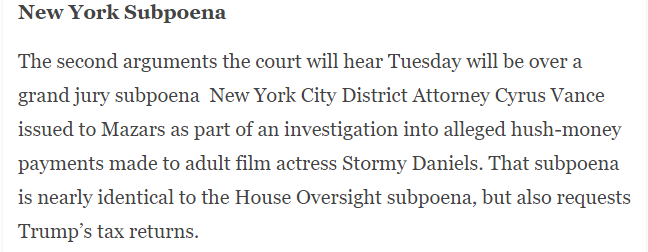
"Certainly not here," Sekulow responds.
Sekulow argues the president is temporarily immune and is not to be treated as an ordinary citizen.
"He is the only individual who is a branch of government in our federal system."
"And he'll hire a lawyer...that wouldn't take a lot of time," Breyer says cutting off Sekulow's argument.
"Don't we usually presume that state courts and state prosecutors act as they should and in good faith?" the justice asks.
"Well he is the president of the United States," Sekulow argues.
"But they are his records from third parties your honor," Sekulow argues.
"What was wrong with Mr. Trump's position?"
"We're talking about private activities that predated the president's tenure. So why are we using all of that transplanted language?"
"No one has been targeted or charged with anything," Dunne says, adding there is no claim of executive privilege.
They were just a "straightforward pursuit" of reports of criminal activity, Dunne says.
"The copying of the subpoena speaks to that," he argues in his concluding statement.
That's it for the Trump tax return double-header arguments on Trump v Mazars/Trump v Vance. Story to come @ByTimRyan
The high court seemed concerned about giving Congress free-reign subpoena power, in double-header arguments over subpoenas for Trump's tax returns. @ByTimRyan
courthousenews.com/fight-to-unear…



